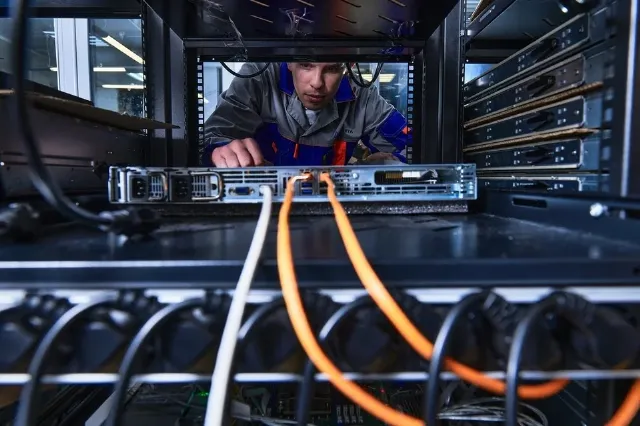The government plans to oblige departments and state-owned companies to purchase electronics in full prepayment, and the Ministry of Finance and the Ministry of Industry and Trade have been instructed to work on this initiative. Electronics manufacturers believe that advancing orders will help them cover the cost of purchasing components and reduce the costs associated with the Central Bank's high key rate. However, the customers themselves believe that a full prepayment will not contribute to the timely and high-quality delivery of equipment from manufacturers.
First Deputy Prime Minister Denis Manturov instructed the Ministry of Industry and Trade and the Ministry of Finance to submit a draft government decree by June 6 providing for the installation of an advance payment of 100% for state and municipal customers under government contracts for the supply of certain types of Russian radioelectronic products, follows from the instructions of the Prime Minister dated February 2, which were reviewed by Kommersant. The same instructions included the elaboration of expanding the practice of forward contracts for tablets, computers, servers, etc., as well as the exclusion of some foreign brands from the list of parallel imports, as Kommersant wrote last week.
Denis Manturov's office confirmed the instructions, and the Ministry of Finance forwarded the request to the Ministry of Industry and Trade. The Ministry of Industry and Trade reported that the successful implementation of the project (the introduction of one hundred percent prepayment for public procurement) will increase the competitiveness of Russian products and strengthen the positions of domestic manufacturers in the domestic and foreign markets.
Advancing the state order will partially offset the negative effect of the Central Bank's key rate, says Dmitry Titov, First Vice President of Aquarius Group. According to him, the list of products with an advance payment of 80% has already been approved by the government decree of 2022. "Industry enterprises propose to include electronic products in the specified list," says Mr. Titov.
According to the "Contour.Procurement", in 2024, 57.3 thousand tenders for the purchase of computers and peripheral equipment were published in accordance with 44-FZ, this figure amounted to 79.6 billion rubles in money. This is 20% more in quantitative terms and 1.2% less in monetary terms compared to the results of 2023. According to 223-FZ, the number of purchases increased by 4%, to 22.7 thousand, in money the figure increased by 31%, to 55.6 billion rubles.
Earlier, the government's plans to change approaches to financing electronics orders were announced, among which the issue of one hundred percent prepayment was discussed, confirms a representative of the electronics manufacturer Fplus. "In particular, there is an idea to oblige all purchases of electronics to be made in the first quarter of the year, since at the moment there is an imbalance, when in the fourth quarter everyone starts spending urgently on budgets and by the end of the year there is a frenzied rush, and in the first three quarters many factories simply stand idle," he explains. Kommersant reported on the downtime of electronics production facilities in early April. According to the Fplus representative, postponing the procurement process to the first quarter may remedy the situation. Currently, there is no obligation for customers to make an advance payment for the purchase of electronics, and the introduction of at least a partial advance would help cover manufacturers' costs for the purchase of components and other expenses, he adds.
However, the electronics customers themselves do not share the optimism regarding full prepayment of tenders. According to Tatyana Karaseva, Vice President and Director of Procurement at Rostelecom, one hundred percent prepayment is not necessary for the domestic electronics industry, since the cost of the product already includes a margin that does not require prepayment. "In addition, a one hundred percent advance does not encourage enterprises to deliver on time and with high quality," she adds. However, Ms. Karaseva admits that full advance payment is necessary and relevant in conditions of a high key rate of the Central Bank. According to her, for the further development of domestic producers, it is necessary to create favorable financial market conditions that will allow enterprises to use affordable financing tools and reduce their dependence on "rigid prepayment schemes."

